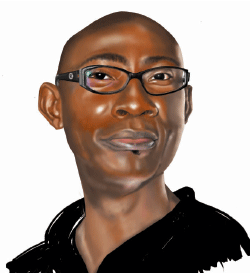Religion is the sigh of the oppressed creature, the heart of a heartless world, just as it is the spirit of a spiritless situation. It is the opium of the people.”
When Karl Max (May 5, 1818 – March 14, 1883) made this statement several years ago, not many people could have imagined the import even in today’s development.
Those who recall this great saying are only fixated on the School of Thought Marx learned from – the Marxism, Communism, Materialism and Socialism ideals as well as the great masters (Friedrich Engels, Georg Wilhelm Friedrich Hegel, among others).
Unfortunately, Marx and his teachers are perceived propounding anti-religious activities, and in most cases, referred to as either atheists or agnostics.
Ordinarily, one would have allowed the horrendous event that took place last week in Mani, Saudi Arabia to pass if not that the incident touched on the fears of Marx regarding religion.
No fewer than 769 pilgrims lost their lives while several others were left with diverse injuries following a stampede at the symbolic stoning of the devil on the last day of the religious pilgrimage, nay tourism.
At the last count, Nigeria lost 64 citizens due mainly to their faith – Islam. That brand of faith which takes its faithful to the “holy” land in Saudi Arabia year in, year out, and in most cases, twice a year, depending on the Muslim calendar.
Another reason one is tempted to comment on this incident is the statements credited to Saudi officials, and the relations of the Saudi king, most of which suggest that those who got caught up in the tragedy were the architects of their own misfortune.
The Saudi-owned al-Arabiya TV reported that the head of the central hajj committee, Khaled al-Faisal, blamed the stampede on “some pilgrims with African nationalities.”
Such comments drew flaks with some critics describing them as “more obscene than racism.”
In trying to absolve the Saudi ruling family that statutorily oversees the hajj activities in Saudi Arabia every year Abdul Aziz al-Sheikh told Crown Prince Mohammed bin Nayef that “you are not responsible for what happened. As for the things that humans cannot control, you are not blamed for them. Fate and destiny are inevitable.”
While al-Faisal is the head of the central hajj committee, Mohammed chairs the Saudi hajj committee. Two juicy committees.
Iran, which lost as many as 144 citizens, thinks that Saudi Arabia cannot handle the pilgrimage.
“Saudi Arabia is incapable of organising the pilgrimage. The running of the hajj must be handed over to the Islamic states,” said Mohammad Emami Kashini while leading weekly prayers in Tehran.
Can anyone in good conscience fault the argument of the Iranians going by the arrogance and irresponsible manner in which the Saudi ruling family is making some provocative comments?
Can anyone in good conscience fault the argument of the Iranians going by the arrogance and irresponsible manner in which the Saudi ruling family is making some provocative comments?
While attending the recent United Nations development summit in New York, Iranian President, Hassan Rouhani, demanded “swift attention to the injured as well as investigating the causes of this incident and other similar incidents in this year’s hajj.”
But the response of Saudi Foreign Minister, Adel al-Jubeir, who was also present at the UN summit, did not suggest remorse.
He said Iranians “should know better than to play politics with a tragedy that has befallen people who were performing their most sacred religious duty.”
It beats the imagination that the Saudi authorities, and particularly the ruling family, which is the greatest beneficiary of this annual religious tourism, would feel comfortable over the huge loss of lives in their country and would defend the indefensible.
As a Nigerian, my heart goes to my Muslim brothers and sisters who lost their lives while on that trip. I sympathise with their families who must be passing through difficult times now trying to grapple with this harrowing experience.
Prominent Nigerian men and women who died included Appeal Court judges, senior government officials, monarchs and state heads of Umrah.
I was reported last week that 64 Nigerians had been confirmed dead, 71 injured, and 224 still missing.
It took the directive from President Muhammadu Buhari to the chairman of the National Hajj Commission of Nigeria (NAHCON), Abdullahi Mukhtar, and the Nigerian embassy in Saudi Arabia before the true picture of the victims was provided.
Just as Iran and other critics accused Saudi Arabia of not taking the matter seriously, down here too, the NAHCON wanted to wait for presidential directive before it could do the needful.
I could not but recall what religion does to the psyche of people as Marx observed. And I know that people’s faith is not supposed to make them stupid in the face of issues of live and death.
Going by the advice which al-Sheikh gave to Nayef, one could conclude that the pilgrims were destined to die the way they did. It was an act of God or the way Allah wanted it as Muslims would say. But I do not think so.
Allah or God would not have told the Saudi authorities not to put in place all the necessary safety measures that would prevent accidents.
Days before the hajj started, a construction crane collapsed at the Grand Mosque, Islam’s holiest site, killing 109 people, including many foreigners.
Many may see that as accident, but were the right things done at the construction site to prevent it?
For about nine years, reports of tragedies have trailed the hosting of pilgrimage until the latest and it is on the strength of these happenings Iran has always doubted the good intention of Saudi Arabia in hosting a hajj free of incident.
Rather than bicker with Iran and other nations, I think the Saudi authorities, and particularly al-Faisal and Nayef, should apologise to those affected.
It is not enough for them to say the circumstances of the incident are being investigated. If they have conscience, they should also ensure that compensation is paid to the families of deceased.
To lose 64 Nigerians in one fell swoop to hajj is an experience many Muslims in this country would not want to have.
But will that stop the annual ritual of going to Saudi Arabia? I doubt it. Will it affect the relationship between Muslims and Saudi Arabia? I also have my doubt.
Will what happened remind our people that the same yearly ritual could be decentralised, nay regionalized, whereby African countries with a large number of Muslims can find a convenient place to go on hajj for the same ritual of stoning the devil?
That is possible. After all, going on hajj to Saudi Arabia or Jerusalem or any other country for religious pilgrimage can be a huge source of revenue.
But I bet Saudi Arabia or Jerusalem will kick out of the idea because of what they benefit from the exercise every year. I also bet the number of those who would kick against the idea from Nigeria and Africa will be huge.
That is why Marx’s classification of religion as the opium of the masses still makes a lot of sense.












